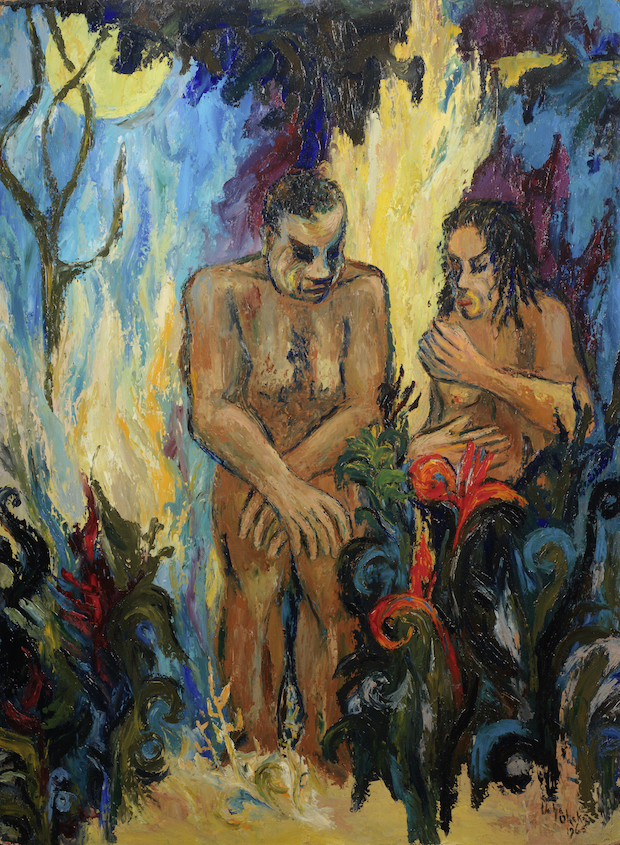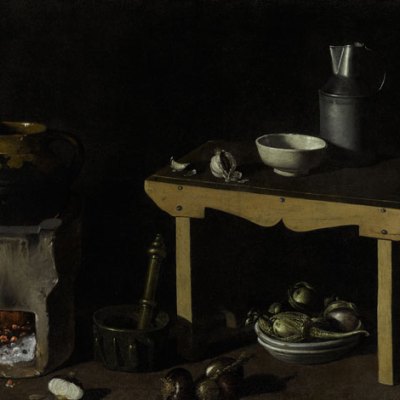If proof were needed of the might of the Chinese buyer in the global art market, it came with Christie’s decision to move back its annual February Impressionist, modern, post-war and contemporary art sales in London to allow for the Chinese New Year celebrations or, perhaps more accurately, the recovery period thereafter. Sotheby’s inevitably followed suit. The Lantern Festival, the final day of festivities, falls this year on 11 February, and the first evening sale of Impressionist and Modern Art, and The Art of the Surreal, opens the series at Christie’s London on 28 February. Most of the subsequent sales have been shunted into March.
Christie’s is tempting buyers with Gauguin’s Te Fare (La maison) of 1892 (estimate £12m–£18m) and Berthe Morisot’s small and intimate Femme et enfant au balcon of 1872. The latter recently took a bow in the blockbuster show ‘Impressionism, Fashion and Modernity’ at the Musée d’Orsay and travelled to the Metropolitan Museum of Art and the Art Institute of Chicago in 2012–13. Like most if not all of Morisot’s work, it treats the domestic world of the women and children of the haute bourgeoisie, the artist’s family and friends serving as models. Here we see her sister Edma dressed in black – the ‘queen of colours’ according to Renoir – with Paule, the daughter of her sister Yves, looking out over the Champ de Mars from the Morisot family home in the rue Franklin.
Everything here is laid out in the watercolour sketch now in Chicago. The finished oil may be more fully resolved, but Morisot’s handling of paint is strikingly broad and fluent, not least in the delicious touches shaping Edma’s parasol and Paule’s smock. Far less attention is given to Edma’s features as she gazes down at her niece, and such sketchy indications of detail mark another characteristic of this Impressionist’s newly found confidence. This canvas was acquired by the German collector and philanthropist Barbara Lambrecht-Schadeberg in 1976, and is now being offered to benefit the Rubens Prize Collection for the Museum für Gegenwartskunst Siegen. It comes with expectations of £1.5m–£2.5m.
Femme et enfant au balcon (1872), Berthe Morisot. Christie’s Images Ltd. 2016 (£1,500,000-2,000,000)

The Art of the Surreal sale the same evening at Christie’s London offers a pearl: René Magritte’s Le domaine d’Arnheim of 1938, the first of several versions of the subject executed in oil and one bought directly from the artist – and possibly even commissioned – by the British patron of Surrealism, Edward James. Its title – loosely translated from the German as eagle’s nest – derives from a story of the same name by Edgar Allen Poe. Here, the unprecedented beauty and serenity of the castle and landscape of Arnheim – the domain of the soaring eagle – created by the fantastically wealthy character Ellison seems to suggest how man may attain nirvana through the meditation of nature. Magritte’s surrealist interpretation, by way of the German Romantic painters, presents us with a bird mountain. Estimate £6.5m–£9.5m.
It may just miss Valentine’s Day but Sotheby’s London is offering its first sale entitled Erotic: Passion & Desire on 16 February. Curated in part by the former editor of the Erotic Review, Rowan Pelling, who also contributes a catalogue introduction, this latest thematic sale encompasses most media and many cultures as it spans the centuries from antiquity to the present day. Head of sale Constantine Frangos says: ‘Art has always existed to tell a human story, and sex has always been part of that story – whether it is there to compel, to shock or to seduce. Indeed, eroticism in art has appeared in whatever form art has taken.’
This is certainly an eclectic offering, and it begins raunchily enough with a 2nd-century Roman marble torso of a hairy-thighed and proudly priapic Pan, which comes with an estimate of £40,000–£60,000. More modestly valued at £2,000–£3,000 is a German silver bourdaloue of 1802 by the Augsburg goldsmith Gustav Friedrich Gerich, engraved with – presumably – Jupiter seducing Io, whom he has spirited away in a cluster of cloud. It is an unusually suggestive subject for a vessel that was specifically – and ergonomically – designed as a conveniently small and portable chamber pot for women, perhaps in this case, women of ill repute. Its name apparently derives from the 17th-century Jesuit priest Louis Bourdaloue, whose sermons were so admired that women could not bear to miss a word.
A German Silver Bourdaloue (1802), Gustav Friedrich Gerich. Courtesy of Sotheby’s London (£2,000-3,000)

We move on via sexually explicit Japanese shunga handscrolls and Indian miniatures to drawings by Picasso and Klimt, photographs by Man Ray and Helmut Newton, and a penile Shiva Vase designed by Ettore Sottsass (estimate £200–£300). Lynette Yiadom-Boakye’s painting of a disrobing man, First (estimate £60,000–£80,000), and Marc Quinn’s gold leaf on bronze Siren (estimate £70,000–£90,000), bring us into the 21st century.
Bonhams was the only international auction house to present sales of modern and contemporary African art when it launched Africa Now in 2009. In the wake of growing numbers of commercial and museum shows in Europe and the US, and the founding of the 1:54 Contemporary African Art Fair in London and New York, and the AKAA – Also Known As Africa art and design fair in Paris, other salerooms are jumping on board, too. Sotheby’s London, for instance, is offering its first dedicated auction on 16 May.
South Africa and Nigeria continue to dominate this market, and the latter’s Uche Okeke (1933–2016) provides one of the highlights of Bonhams’ offering on 15 February. Okeke was a seminal figure in the development of Nigerian art in the post-colonial era. On Nigeria’s independence in 1960, he wrote a manifesto that argued for a ‘natural synthesis’ of local traditions and modern Western art to create a new Nigerian art. That decade saw him creating works inspired by traditional uli painting with which the Igbo adorned their homes and bodies, and producing expressive paintings dealing with Christianity as well as Igbo folklore. His widely exhibited Adam and Eve of 1965 is offered here – a riotous, reimagined Garden of Eden, exploding with the intense colour and irrepressible energy of the natural world. Estimate £20,000–£30,000.
Adam and Eve (1965), Uche Okeke. Courtesy of Bonhams (£20,000-30,000)

From the February 2017 issue of Apollo. Preview and subscribe here.



